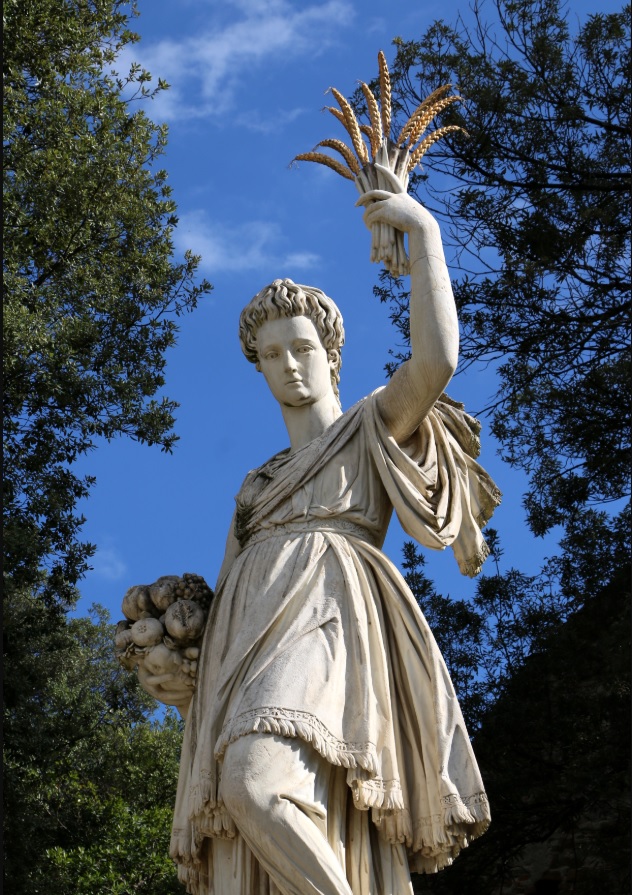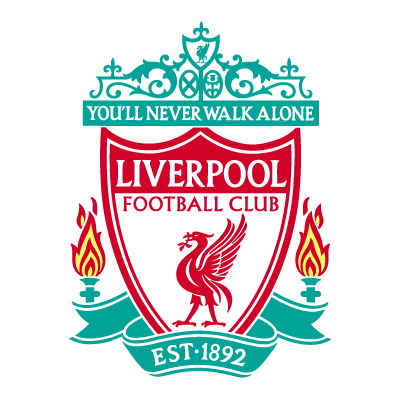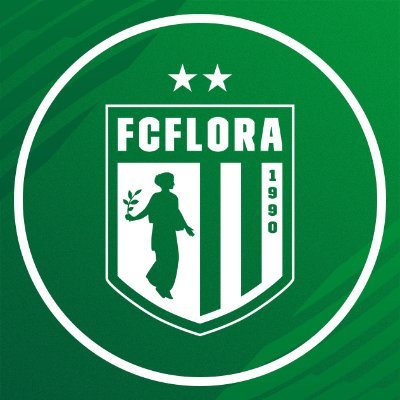Demeter – Goddess of Agriculture & Harvest
Roman name : Ceres (dwarf-planet named after her)

Demeter was one of the most important deities in ancient Greek religion and mythology. She was the goddess of the harvest, agriculture, fertility, and the earth. She was also a goddess of women, family, law, and the Eleusinian Mysteries (secret religious rites).
Origins
Demeter was one of the children of the Titans Cronus and Rhea, who ruled the world before the Olympian gods. She was the sister of Zeus, Hestia, Hera, Hades, and Poseidon. Her name means “mother earth” or “grain mother”, indicating her ancient role as a fertility goddess.
Demeter was rarely mentioned by Homer, the epic poet who wrote the Iliad and the Odyssey. She was not considered one of the twelve Olympians who lived on Mount Olympus, the home of the gods. However, the Greeks widely worshiped her, especially in rural areas where agriculture was the main source of livelihood.
Powers and Symbols
Demeter had the power to control the growth and abundance of crops, grains, fruits, and vegetables and was also able to influence the seasons, the weather, and the fertility of humans and animals. Often depicted holding a cornucopia, a horn-shaped basket filled with fruits and grains which symbolized her generosity and bounty, she carried a torch, a poppy, a wheat ear, or a loaf of bread as her attributes.
Demeter was associated with several animals, such as the pig, the serpent, the gecko, the turtledove, the crane, and the screech owl. She was also linked to the color green, the element earth, and the direction north.
The Cult and Festivals of Demeter
Demeter had many temples and shrines dedicated to her throughout Greece and beyond. The most famous one was at Eleusis, a town near Athens, where she revealed her secret rites to the people who had hospitably received her. These rites were known as the Eleusinian Mysteries, and they were the most sacred and secretive ceremonies in ancient Greek religion. They involved a series of initiations, rituals, and mysteries that promised eternal life and happiness to the participants.
Demeter was also honored with various festivals and celebrations, such as the Thesmophoria, the Haloa, the Anthesteria, and the Thargelia. These festivals were held at different times of the year, corresponding to the agricultural cycle and the seasons. They involved sacrifices, offerings, processions, dances, games, and feasts in honor of the goddess and her gifts.
The Myth of Demeter and Persephone
The most famous myth involving Demeter is the story of her daughter Persephone, who was the goddess of spring and the underworld. Persephone was abducted by Hades, the god of the dead, who fell in love with her and wanted to make her his queen. He took her to his dark realm, where she ate six pomegranate seeds, which bound her to him for six months of the year.
Demeter was devastated by the loss of her daughter and searched for her everywhere. She neglected her duties as the goddess of the harvest and caused a famine on the earth, refusing to return to Olympus. She wandered the earth in disguise, until she arrived at Eleusis, where she was welcomed by the king and queen, who did not recognize her. There, she nursed their son Demophoon and tried to make him immortal by placing him in the fire every night. However, she was discovered by the queen, who screamed in horror, and Demeter revealed her true identity. She then demanded that a temple be built for her at Eleusis, where she would teach her mysteries to the people.
Meanwhile, Zeus, the king of the gods, was concerned about the state of the world and the anger of Demeter. He sent Hermes, the messenger god, to persuade Hades to release Persephone. Hades agreed, but only on the condition that Persephone had not eaten anything in the underworld. When he learned that she had eaten six pomegranate seeds, he decided that she would have to stay with him for six months of the year, and return to her mother for the other six months.
Demeter was overjoyed to see her daughter again, but also saddened by the fact that she had to lose her for half of the year. She agreed to the arrangement, but only if the earth would flourish when Persephone was with her, and wither when she was away. This is how the seasons were created, according to the myth. When Persephone was with Demeter, the earth was green and fertile, and it was spring and summer. When Persephone was with Hades, the earth was barren and cold, and it was autumn and winter.
The myth of Demeter and Persephone (and Hades) is retold in the graphic novel series Lore Olympus, which will be coming soon to Netflix!
Legacy
Demeter was one of the most influential and revered goddesses in ancient Greek culture. She was the source of life and nourishment, the protector of women and children, the giver of law and order, and the keeper of the mysteries, who also had a dark and vengeful side. Sometimes she was identified with other goddesses, such as Gaia, Rhea, Cybele, and Isis.
Demeter’s cult and festivals survived for centuries, even after the rise of Christianity. Her name and attributes were also adopted by other cultures and religions, such as the Romans, who called her Ceres, and the Celts, who called her Danu. She is still remembered today as a symbol of nature, fertility, and motherhood.
Demeter recommends:
-
Product on saleLore Olympus: Volume OneOriginal price was: $26.99.$10.45Current price is: $10.45.
-
Product on saleConstellations for Kids: An Easy Guide to Discovering the StarsOriginal price was: $9.99.$7.36Current price is: $7.36.
-
The Mythology of Plants: Botanical Lore from Ancient Greece and Rome$19.79
-
Product on saleConcordia GameOriginal price was: $64.99.$47.75Current price is: $47.75.
The Teams of Demeter
If Demeter was a fan of modern sports, she would support:

Sacred to Demeter
Snakes were sacred for Demeter, who would have clearly been a fan of the Arizona Diamondbacks, who have 1 World Series title and 5 west division championships under their belt.

Sacred to Demeter
Geckoes were sacred to Demeter, and since geckoes are smaller lizards, Demeter would have been fond of the New York Lizards, one of the best lacrosse teams in MLL (Major League Lacrosse) with 3 championships and 3 division titles under their belt.

Similar to a Crane
The liver bird depicted on the crest of Liverpool is a fictional bird, but it would remind Demeter of the crane, which was a special animal for her. The most successful English club in UEFA Champions League with 6 wins, Demeter would be a fan of Liverpool.




